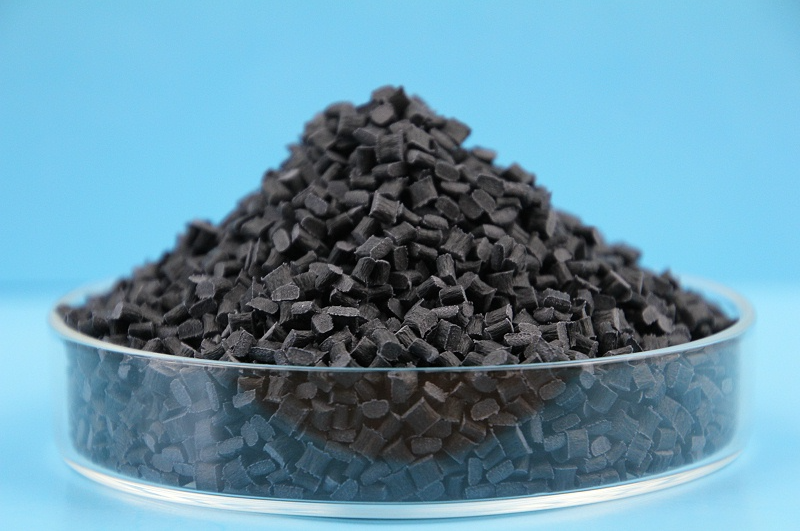Both fibers boost nylon (polyamide) performance—but which fits your project? Below is a no-fluff breakdown of 30% fiber content (most common grade) and real-world uses.
1. Core Performance: 30% Fiber Comparison
Metric | 30% CFR Nylon | |
Weight | Standard | 10% lighter |
Tensile Strength | Good | 5% higher |
Flexural Strength | Reliable | 3% higher |
Notched Impact Strength | Tougher | 20% lower |

2. Price & Processing
• Cost: Carbon fiber = ~14-15x more expensive than short glass fiber → GFR Nylon = budget-friendly choice.
• Processing: CFR Nylon needs more complex production (e.g., fiber dispersion control) vs. GFR Nylon’s mature, easy-scaling process.

3. CFR Nylon’s Unique Advantages
CFR Nylon beats GFR Nylon in 3 critical areas:
• Higher Rigidity: 2x flexural modulus + ½ linear expansion → perfect for precision parts (e.g., mechanical components).
• Conductivity: Dielectric constant 10³-10⁶ (30% CFR Nylon 6) → ideal for anti-static/EM shielding.
• Heat Transfer: 2x faster than GFR Nylon → great for heat-dissipating parts (e.g., electronic enclosures).
4. Where to Use Each
CFR Nylon (High-Performance Needs)
• Aerospace/Defense: 40% CFR Nylon for U.S. MX missile cylinders; used in 70% of small business jet parts (wings, nacelles).
• Sports/High-Tech: 30% CFR Nylon for tennis rackets, racing bumpers, robot arms, safety helmets.
GFR Nylon (Everyday Industrial Use)
• Automotive: Sensor housings, brackets.
• Electronics: Connector shells.
• Medical: Wheelchair frames.
• Tools: Power tool casings.

Need Help Choosing?
We supply custom 30%/40% GFR/CFR Nylon with samples & technical docs. Contact us for bulk quotes!






